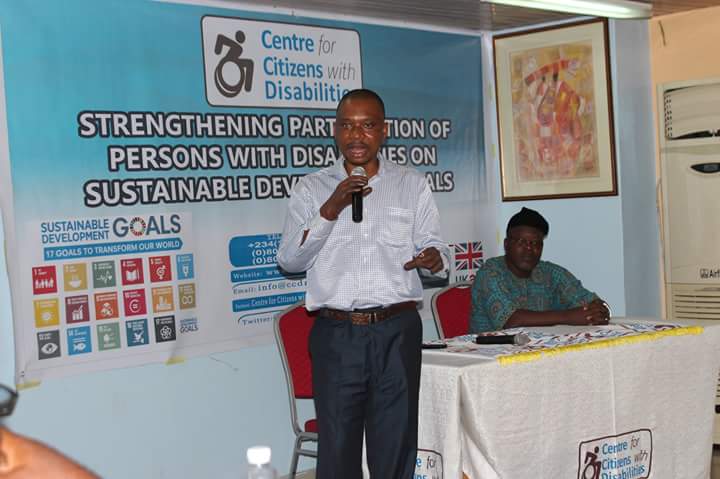Center for Citizens with Disabilities (CCD) has called for quick implementation of the National Disability Law as it celebrated the 100 Days of assent to the bill by President Muhammadu Buhari.
Mr David Anyaele, Executive Director of CCD, made the call on Saturday, in a statement shortly after a thanksgiving service held in Abuja in commemoration of the 100-Day celebration.
News Agency of Nigeria reports that Buhari had on Jan. 23, signed into law the Discrimination Against Persons with Disabilities (Prohibition) Act, 2018, following years of relentless advocacy by disability rights groups and activist.
Anyaele said that the thanksgiving was part of activities to mark the 100 days of the Discrimination Against Persons with Disabilities (Prohibition) Act.
“CCD is excited to appear before God to give him all the glory for answering the prayers of many Nigerians for the assent of Nigeria’s Disability Law.
“We are celebrating today to thank God along with over 25 million Nigerians with one form of disabilities or the other, on a struggle that is rewarding.
“We organised this thanksgiving service to appreciate God for answered prayer of more than 50 coalitions of disability organisations and cluster groups consisting of over 25 million PWDs, with over 80 per cent in rural areas having minimal access to social infrastructure.
“This is also in recognition of the over 18 years of lobbying and advocacy to many sessions of the National Assembly for the passage of the bill, with different administrations at the Presidency denying assent to the bill.
“We are also thanking God that throughout the struggle for the passage of the bill into law, CCD organised three major protest marches in 2017, 2018 and 2019 and none of the participants at the protest marches suffered any form of injury or casualty”, he said.
Anyaele acknowledged the support received from both international and local partners since the involvement and leadership of CCD in the struggle for the passage of the bill into law.
“We appreciate the role played by our friends from the media in educating and sensitising the public on the importance of the bill before the assent and now the importance of implementation,” he said.
He noted that “to ensure that the purpose of the act, which is for the full integration of PWDs into the society, the National Commission attached to the act must be established quickly’’.
Anyaele said the commission would be vested with responsibilities such as providing education, health care services, social, economic and civil rights protections for PWDs.
He called on Federal Government to take urgent actions to ensure quick and effective implementation of the act in totality.
“The first step expected from the government is the establishment of the National Commission for Persons with Disabilities as provided in part 7, section 31 of the National Disability Act.
“Also the Federal Ministry of Information and Culture should take urgent action to ensure the full implementation of part 1, section 2 of the Act.
“This provides that the ministry shall make provisions for promotion of awareness regarding the rights, respect and dignity of persons with disabilities; capabilities, achievements and contributions of persons with disabilities to the society,” he said.
Anyaele also urged religious leaders and establishments to support the government in the implementation of the law.
He noted that support of faith-based organisations was paramount as one of the key concerns of PWDs was access to worship centres on equal bases with others.




